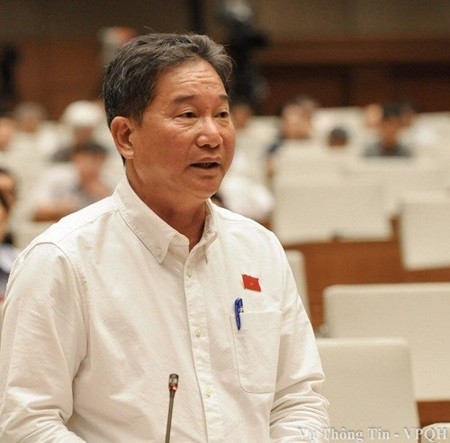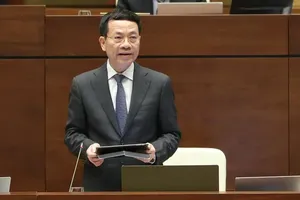Lawmakers yesterday agreed to abolish the death penalty for several crime categories, but many insisted the death sentence for corruption remain, saying that if the crime was not punished properly, it would cause disorder in society.

Discussing the revised Penal Code at the on-going ninth National Assembly (NA) session, deputies said that the number of death penalties should be reduced and the numbers of those given amnesty increased.
The majority of the NA Committee for Justice members agreed to abolish seven out of 22 categories attracting the death penalty, including robbery, destroying important works, creating war and for war crimes.
In a talk with reporters, Nguyen Ba Thuyen from the southern province of Lam Dong, welcomed the move, saying that the abolishment showed the humanity of the revised code.
However, he disapproved the abolishment of the penalty for drug trafficking and trading. "Traffickers and traders may take advantage of this regulation to avoid the death sentence," he said.
Nguyen Thanh Binh from the southern province of Vinh Long said that war criminals should not be abolished from the list of crimes attracting the death penalty.
"This crime is especially serious which is against the human race and causes serious consequences to a region or a country," he said.
Economic crime
However, the Minister of Planning and Investment, Bui Quang Vinh, opposed the dropping of the crime "deliberate wrongdoing in State's economic management regulations causing serious consequences" from the death penalty list. Many deputies opposed him.
Vinh said that there should be economic measures to punish such crimes.
He argued that in some cases, the death penalty was not good as the Government could not take the illegal money and properties back. But if the law-breaker was let live, the Government would get the money returned," he said.
Vinh pleaded for a limit to the criminalisation of economic wrongdoing, saying that there should be detailed regulations for different categories.
His views faced opposition from many NA deputies who said that economic wrongdoing was corruption and it should not be tolerated.
Nguyen Thi Kha from the southern province of Tra Vinh said that she disagreed totally with the minister's opinion.
"If the law-breakers are not discovered, they will live their luxurious life into old age. Even if they are discovered, all they have to do to avoid the death penatly is to pay a sum of money. This makes the law unfair and distorted," she said.
Sharing her opinion, Nguyen Doan Khanh from the northern province of Phu Tho, who is also the Deputy Head of the Central Party Committee's Inspection Commission, said that removing economic wrongdoing from the death penalty would hamper the fight against corruption.
Do Ngoc Nien from the central province of Binh Thuan said that the abolishment of economic crimes from the death list would be unfair to others sentenced to death and created a loophole for corrupt people.
"In order to get rid of the national problem of corruption, we should have had stricter punishments. But we are going the opposite way by doing this," he said.
"We cannot trade people's trust, change justice and tolerate corruption by allowing money to replace the death sentence," he added.
A regulation not to apply the death sentence to law-breakers to those above 70 also faced opposition.
Many deputies said that many people at that ages committed serious crimes. Some were even leaders of criminal rings, they said, urging for the maintenance of the punishment on those above 70.
























